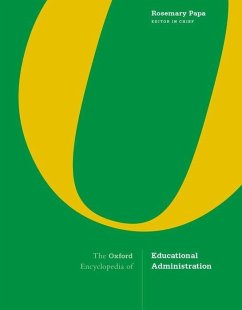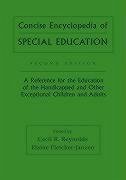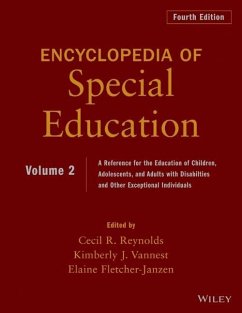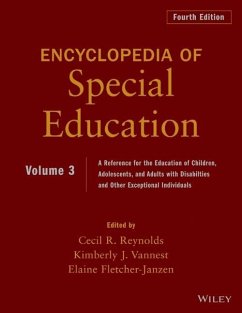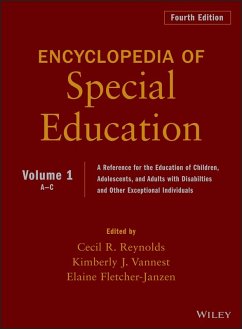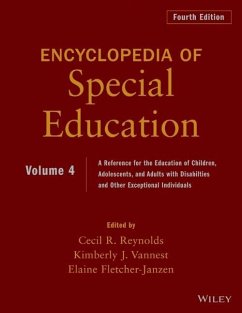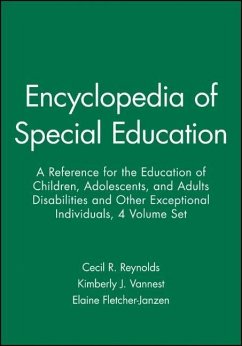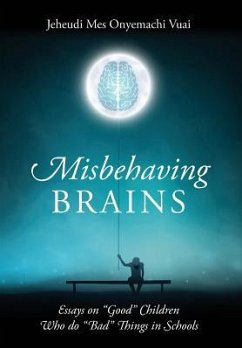
The Oxford Encyclopedia of Inclusive and Special Education
Versandkostenfrei!
Versandfertig in über 4 Wochen
403,99 €
inkl. MwSt.

PAYBACK Punkte
202 °P sammeln!
Throughout the world, there has been a significant shift in whether, where, and how learners are educated regardless of their socio-economic, geographic, and disability status; gender and sexual orientation; family structure; and ethnic, racial, cultural, linguistic and religious background. Recognizing that the debates, challenges, research, initiatives, and recommendations concerning the best ways to provide a high-quality education to learners with a range of diversities continue to influence educational policies and practices around the world, The Oxford Encyclopedia of Inclusive and Speci...
Throughout the world, there has been a significant shift in whether, where, and how learners are educated regardless of their socio-economic, geographic, and disability status; gender and sexual orientation; family structure; and ethnic, racial, cultural, linguistic and religious background. Recognizing that the debates, challenges, research, initiatives, and recommendations concerning the best ways to provide a high-quality education to learners with a range of diversities continue to influence educational policies and practices around the world, The Oxford Encyclopedia of Inclusive and Special Education presents the contributions of a diverse international group of established and up-and-coming scholars who discuss an array of historical, current, and emerging issues that are at the intersection of inclusive and special schooling. While the Encyclopedia addresses inclusive and special education, the primary focus is on inclusive education as an international and 21st century movement that in part reflects and rejects the foundations of special education. By presenting global perspectives addressing the foundations, effective practices, policies, and workforce preparation initiatives related to inclusive and special education, these volumes examine a range of issues that are at the nexus of inclusive and special schooling.



